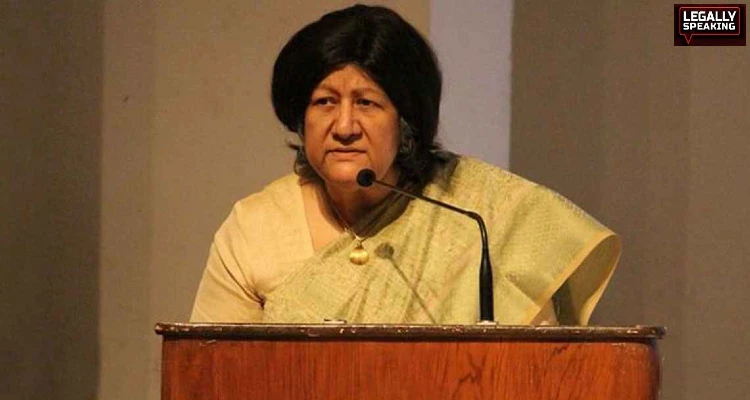
Former Supreme Court judge Indira Banerjee emphasized the “gender imbalance in the higher judiciary” and noted that her appointment to the top court in 2018 marked only the eighth instance of a woman serving there in 68 years since the Constitution’s inception.
She expressed optimism regarding the future improvement of women’s representation in the higher judiciary. “I was the eighth woman to be appointed judge of the Supreme Court in 68 years after the Constitution came into force…. Why do you have this gender imbalance in the higher judiciary?” she queried during her address at an event organized by the Adhivakta Parishad to commemorate International Women’s Day.
Banerjee assumed her position as a judge of the apex court on August 7, 2018, and retired on September 23, 2022. In her remarks, she highlighted this disparity despite women outperforming men in the judiciary’s competitive exams in many states, with around 60 per cent of successful candidates being women.
“So why is it that they do well when it comes to competing in an examination but we can’t make it to the higher judiciary? This is because of the system of making appointments — that 33 per cent of the members are appointed from the judiciary and 66 per cent are appointed from the bar…,” she explained.
Justice (retired) Banerjee also mentioned challenges faced by married female legal practitioners, who might need to take a hiatus from their practice due to maternity issues. She addressed societal expectations of women, emphasizing the prevailing mindset that confines women to household chores and sidelines their ambitions.
“I hope there will be more women in the Supreme Court. At least 40 per cent. There will be more women who will even adorn the top office in the higher judiciary and become Chief Justice of India,” she expressed.
She identified societal mindset as the primary hurdle to women’s equality. Delhi High Court judge Justice Pratibha M Singh, also speaking at the event, echoed Banerjee’s sentiments, highlighting the significant role women play in the family structure.
“The biggest role is played by women (in the family structure). And therefore, I believe that women are not just catalysts in social change…as you all know, in a chemical reaction, a catalyst merely makes the reaction happen. But I think that women are the social change. We’re not just catalysts in the field,” Justice Singh emphasized.
She remarked on the disproportion between the number of female law students and enrolled advocates, attributing it to societal perceptions that women lawyers cannot balance professional and domestic responsibilities. However, she noted the empathy and insight women litigating lawyers bring to their practice, urging a shift in societal attitudes towards women in the legal profession.




